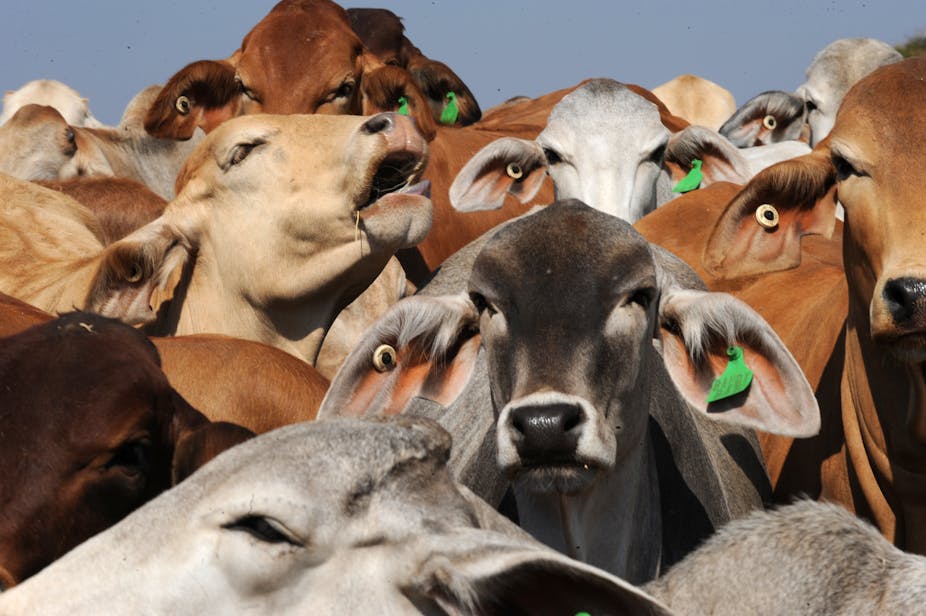Indonesia’s decision to cut live cattle imports from Australia is the clearest example yet of the significant and long-lasting damage that June’s export ban did to relations with our nearest neighbour.
Rarely in history has there been an example of two neighbouring countries being so diametrically opposed in so many ways – culture, geography, socioeconomic status, religion and population density. We may therefore expect some difficulties when dealing with trade between the two countries in such a sensitive commodity as live cattle.
However, the affront to Indonesian pride by Australia’s ban on the trade, apparently without consultation with Indonesian authorities (let alone Australian cattle producers), has set back the trust between the two countries a long way. To act in this way with our closest neighbour, one of the world’s major trading nations since the seventh century, was disrespectful.
It provided the perfect incentive for Indonesian authorities to reaffirm their intention to become self-sufficient in beef production, an aspiration that they have held for at least 30 years.
The only way in which this can happen is by cutting down native forest in less populated islands, such as Sumatra, Irian Jaya and Kalimantan in Borneo, thereby providing jobs to the rural poor, stemming the migration to cities and reducing reliance on imports to maintain food security. Indonesian authorities have been settling people from highly populated Java to Sumatra for over four decades, and with United Nations assistance, provided them with cattle from which to make a living. The transition from forest fringe, small-scale agriculture to cattle farming has met many difficulties: disease outbreaks in the cattle, poor productivity, unsuitable ecosystems for livestock farming, soil erosion and lack of forage for the animals.

I was in Borneo recently and listened with concern and dismay as a Malaysian government minister announced his country’s intention to cut down forest and introduce widespread livestock production units throughout its section of the island within 20 years.
The Indonesian government knows that this is their right, too – and not just in Kalimantan, Indonesia’s section of Borneo. They are planning to do the same on the lesser populated outer islands. After all, Western countries cut down most of their forests centuries ago. But there are so many reasons why this should not happen in the current era.
The Indonesian rainforest has major benefit as a carbon dioxide sink, counteracting the damaging effects of global warming. It is a massive reserve of biodiversity, including endangered species of great value, such as the Sumatran tiger, orang-utans, leopards and pigmy elephants, and it is a potential focus of ecotourism. Eliminate these for cattle farms and you have demonstrated a major breakdown in modern society’s ability to manage the planet’s most valuable resources.
Australia can far more efficiently produce the beef that Indonesians desire in the vast savannahs of the north of our country. There are still concerns about the sustainability of the farming method, the output of pollutants from the cattle and the welfare of the cattle. But if beef has to be produced, let it be produced in the region better suited to the farming system.
If the Australian people insist, and they should, meat can be sent over as carcases rather than live animals. With the development of refrigeration capacity in Indonesia, this will pose few difficulties. The cattle farmers of northern Australia have had a clear signal to accelerate the reinstatement of abattoirs in their region.
We might also advise Indonesia on the wisdom – or otherwise – of moving to a Western-style diet, with increased meat consumption per head and the associated health problems. This would require tact and diplomacy when a significant proportion of the population is malnourished.
The Australian government should approach the Indonesian government with great humility and respect in negotiating the conditions for the cattle trade between the two countries. Indonesia’s rain forests are a treasure that Australia knows the world can ill afford to sacrifice. It also has a long history of confrontation with Western colonial powers that Australia has to overcome.
The mishandling of the live export ban should be publicly acknowledged by the Australian government, and an apology presented to the Indonesian government.
This, together with a major initiative to place the trading and cultural exchange activities between the two countries on a strong growth trajectory over the next decade, may yet restore relations. “Coveting thy neighbours’ ox” is no longer a sin; it may yet prove to be a means of establishing an “entente cordiale” between the two countries.

